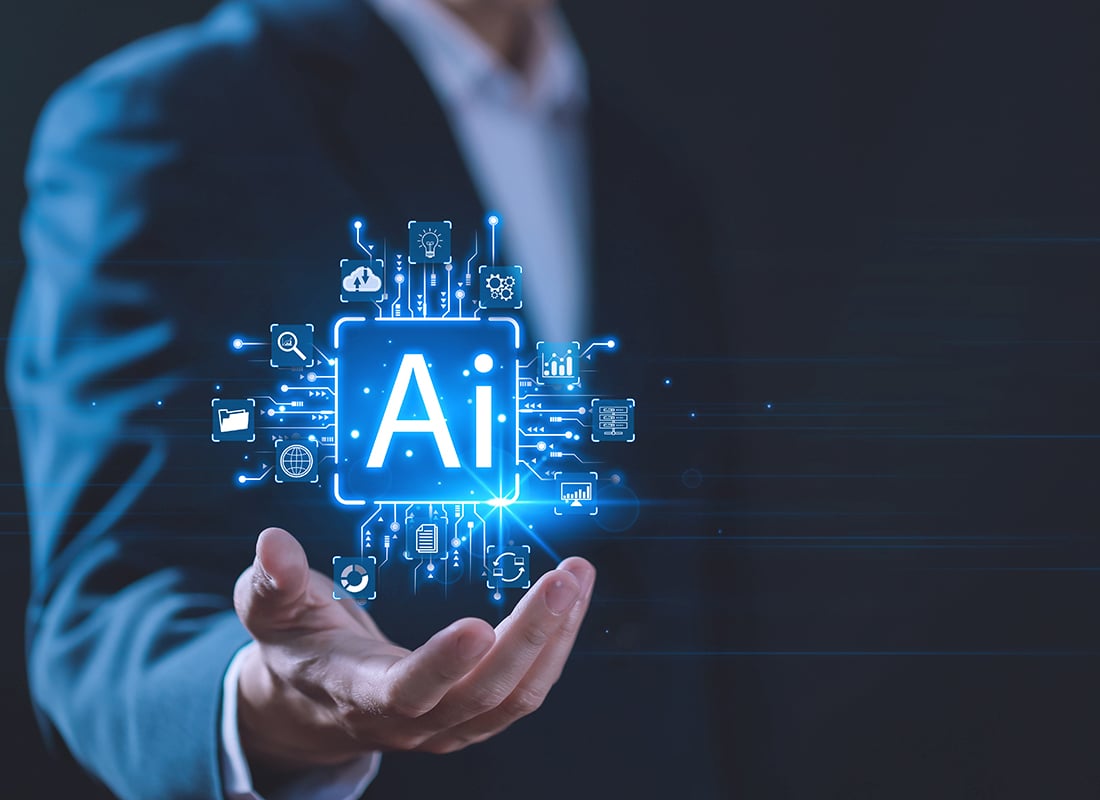A recent CIO Network event explored the latest advancements in AI and how the technology is transforming businesses and industries. Georgia Smith reports on the event’s key themes and discoveries.
Artificial Intelligence (AI) has emerged as a transformative force in the business world, and its applications are rapidly expanding. With this in mind, the second BCS CIO Network event focused on the technology.
From the various technical experts’ opinions and experiences that were shared, four top-level, recurring themes stand out as the most important and often mentioned by attendees:
- Human in the loop (HITL) verification: The need for human involvement in verifying AI-generated information was a consistent and vital theme. Trust and confidence in AI technology heavily depend on this aspect.
- Strategic integration: Integrating AI into long-term business strategies is crucial. We should not view AI as a standalone solution. Rushed implementation without strategic alignment can lead to failures.
- Balancing costs and benefits: Achieving a balance between the costs of AI integration and the benefits it brings is crucial. It is essential to prioritise resources effectively and avoid overstretching.
- Unintended consequences: When deploying AI solutions, we need to be wary of blanket implementations which lack consideration about how the technology will be integrated into existing roles and policies. AI is a transformative technology that can have unforeseen consequences that are hard to manage after release and rollout.
The Transformative Power of AI: Insights and Trends
AI is not new but has indisputably taken centre stage, redefining how businesses and industries operate. At the BCS CIO Network event, assembled technical experts made a myriad of observations and offered a plethora of insights about AI. These shed light on the current state and prospects for the technology.
AI should not be seen as a short-term trend but a long-term strategic opportunity for businesses. Experts emphasise integrating AI into a company's overarching vision and values. Organisations should not succumb to the allure of quick wins. Rather, speakers at the CIO event recommend a strategic approach that ensures AI is incorporated thoughtfully into organisational processes and objectives.
Speakers felt it important to recognise AI's transformative potential and be vigilant about unintended consequences. Achieving a balance between the costs and benefits of AI integration while securing buy-in from both top-down and bottom-up is essential.
The development of ethical policies and guidelines for AI are also paramount. Experts highlight the necessity for transparency and explainability within AI systems. Developers should create comprehensive documentation detailing the entire development process. These can help allay concerns about AI ethics and accountability.
AI biases are a recognised challenge, and experts point out that addressing dataset bias is more manageable in AI outputs than in human decisions. A meticulous approach to dataset curation is critical to ensure fair and unbiased AI results.
The urgency of developing and implementing ethical policies and guidelines for AI was also highlighted. The fast-evolving AI landscape means that policy sometimes precedes development. Because of this, experts felt, ensuring AI applications align with ethical standards is paramount.
One recurring theme that resonates with technical experts is generative AI’s advent. This technology has made AI tools more accessible and the datasets that fuel them more valuable. Generative AI’s intuitive nature makes AI more approachable, making the outputs generated easier to comprehend.
It’s not all plain sailing though. Technical experts voiced concerns about the gap in understanding how AI actually works. While generative AI simplifies the user experience, a comprehensive understanding of the technology’s true workings remains hidden and so, elusive. Consequently, many experts advocate for comprehensive education and awareness to bridge this knowledge gap.
Call centres and their operation was a place where experts felt AI is already making tangible changes to workflows. Call operators have traditionally been responsible for sifting through databases to retrieve information. However, a significant shift is underway as AI chatbots take over routine, time-consuming tasks, allowing human operators to dedicate more time and energy to customer service.
Experts reported positive results, marked by enhanced operational efficiency and improved customer experiences. AI has also streamlined the onboarding process for new operatives in call centres.
A critical theme across AI discussions was the ‘human in the loop’ validation concept. AI systems provide information for human verification, so ensuring the reliability of this generated information. Trust in AI outputs is pivotal, and human validation is indispensable in building confidence in the technology. The human touch remains paramount in establishing trust and authenticity despite AI's capabilities.
Experts highlighted another noteworthy, here-and-now AI application: translation tools. These can go beyond just breaking down language barriers. In some applications, AI is being employed to enhance accessibility, particularly through sign language translation. The result is a more inclusive and diverse communication environment. In summary, AI can help foster understanding and unity among diverse communities.
Effective collaboration between data scientists and end-users is crucial in successfully integrating AI. Here technical experts stress the importance of understanding various departments' specific needs and challenges. This will enable them to create tailored AI solutions that meet unique requirements. This underscores the significance of a holistic approach combining data scientists' technical expertise and end-users’ real-world insights.
While the prospect of automation may evoke fear and suspicion among employees, the careful deployment of AI, as experts note, can yield substantial benefits. Striking the right balance between automation and human involvement is the key to optimising productivity while preserving job satisfaction.
Experts felt that change management that places open and bi-directional communication at its heart is key to building an environment where existing employees can feel positive about AI’s arrival.
BCS’ place in AI development
Attendees heard how BCS operates at the intersection of technology and society and how the policy team works hard to represent members’ views.
For you
Be part of something bigger, join BCS, The Chartered Institute for IT.
Attendees heard about BCS’ experience at the recent party political conferences. At the Labour event, BCS made valuable contacts to build its profile. BCS hosted a round table on supporting a diverse AI talent pipeline. Guests included the Shadow Minister for AI, the leader of Labour Women in Tech, Baroness Thornton, policy leads at Google, Zoom and Microsoft, a UN disability and accessibility rights advocate and the founder of Mumsnet.
To successfully influence future technologies, BCS needs a voice in political spheres. It is hugely positive that BCS has found a seat at the table.
The importance of skills
AI skills are becoming increasingly important across workforces. BCS was invited by the incoming Lord Mayor of London, Michael Minelli, to create an AI Certification to support the ethical and responsible development of AI in the financial services sector initially, focusing on those who are developing AI systems. Slated for release in 2024, the course will cover:
- The foundations of ethics and policy in AI
- Regulation and governance
- The importance of explainability
- Transparency
- Sustainability
Attendees were also introduced to a forthcoming paper on the Future of Work. Authored by F-TAG, the BCS Fellows Technical Advisory Group, the developing document explores the importance of collaboration across sectors — government, education, policy, and business — to plan for the future effectively.
The paper focuses on practical approaches to integrating AI into everyday business and life, and key themes include the augmented intelligence economy, defining a harmonious relationship between humans and AI, shifting from an output to an outcome-focused economy, and incorporating a learning mindset into working life across employee demographics and age groups. Five questions arising from the paper were:
- How can we augment education with AI?
- How can we provide training on AI?
- How will workers’ rights need to be protected or reconsidered with the advent of widespread AI?
- What should governance and regulations aim to deliver?
- How can we most successfully radically collaborate and innovate?
Conclusion and final summary
In summary, the successful deployment of AI in business relies on human collaboration, strategic planning, and a keen focus on AI technology's practical and ethical aspects.
As we build, we should be mindful of unintended consequences. These, by definition, are hard to manage after a solution is deployed.
While AI presents opportunities for automation and efficiency, it must be integrated thoughtfully and transparently to maximise its potential.
What is the CIO Network?
Vibrant, animated and practical, the CIO Network aims to provide leaders with a space to form ideas and ultimately shape tomorrow’s technology agenda.
Want to connect with like-minded CIOs and discuss your challenges and triumphs? Find out how you can join the next event by getting in touch with our team today. Please note the CIO Network is non-commercial.

















